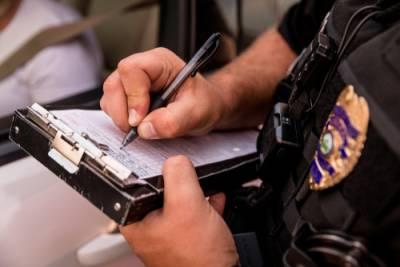

Some of the most common violent crimes in Illinois and throughout the United States are assault and battery charges. Statistics show that in 2017, there were an estimated 810,825 aggravated assaults in the United States. Although people often use these terms interchangeably in everyday conversation, they cannot be misused in the criminal justice realm. If you have suffered from a violent crime, it is important to understand how you have been victimized.
In Illinois, a person can be guilty of assault if he or she knowingly engages in conduct that would lead another person to believe that physical harm could result. This means that contact does not have to be made for assault to be charged. For example, a verbal threat or a simple fist-raising can be enough to initiate an assault claim.
 Hearing sirens and seeing flashing blue and red lights behind you is never a good feeling, especially if you are unsure why you are being pulled over. Some people panic when this happens, while others become extremely anxious and nervous. No matter the reason you are being pulled over, your behavior and actions during the traffic stop can influence the outcome of the stop. There are certain things that you should and should not do when you are pulled over by police. Here are a few tips to follow if you are pulled over by a police officer in Illinois:
Hearing sirens and seeing flashing blue and red lights behind you is never a good feeling, especially if you are unsure why you are being pulled over. Some people panic when this happens, while others become extremely anxious and nervous. No matter the reason you are being pulled over, your behavior and actions during the traffic stop can influence the outcome of the stop. There are certain things that you should and should not do when you are pulled over by police. Here are a few tips to follow if you are pulled over by a police officer in Illinois:
As soon as you notice police are trying to pull you over, immediately slow down and look for a safe place to stop. If there are no immediate places to safely pull over, put your hazard lights on while you look.
Once you have safely pulled over, roll your windows down and keep your hands in plain view, such as in your lap or on the steering wheel. Do not reach for anything unless the officer has asked you to do so.
 There are plenty of ways you can get a traffic ticket in Illinois — running a red light, not fully stopping at a stop sign, forgetting to use your blinker while you are turning — the list goes on and on. Traffic tickets can range anywhere from a correctable violation, such as a broken tail light, to felony criminal charges, such as aggravated speeding or reckless driving. For many people, getting a ticket means paying the fine and dealing with the consequences, but in some cases, it can be beneficial to fight the traffic ticket rather than accept it. Some traffic tickets can be charged as criminal offenses and can carry jail time, which is much more serious than just paying a fine. If you have gotten a traffic ticket, it is important that you understand how to minimize the consequences you may face.
There are plenty of ways you can get a traffic ticket in Illinois — running a red light, not fully stopping at a stop sign, forgetting to use your blinker while you are turning — the list goes on and on. Traffic tickets can range anywhere from a correctable violation, such as a broken tail light, to felony criminal charges, such as aggravated speeding or reckless driving. For many people, getting a ticket means paying the fine and dealing with the consequences, but in some cases, it can be beneficial to fight the traffic ticket rather than accept it. Some traffic tickets can be charged as criminal offenses and can carry jail time, which is much more serious than just paying a fine. If you have gotten a traffic ticket, it is important that you understand how to minimize the consequences you may face.
 Violent crimes are serious charges that come with significant legal consequences. Many violent crimes can easily escalate to felony charges, which can mean expensive fines and lengthy periods of jail time. Sometimes, actions that led to assault or battery charges may have been taken to defend yourself against another person. The state of Illinois recognizes that you have the right to protect yourself, your property, or other people if there is a threat present. In certain situations, you have the right to perform an act of force that would otherwise be an illegal act if it was not done in self-defense. If you have been charged with a violent crime such as assault or battery, and you believe you acted in self-defense, you should seek immediate assistance from a criminal defense attorney.
Violent crimes are serious charges that come with significant legal consequences. Many violent crimes can easily escalate to felony charges, which can mean expensive fines and lengthy periods of jail time. Sometimes, actions that led to assault or battery charges may have been taken to defend yourself against another person. The state of Illinois recognizes that you have the right to protect yourself, your property, or other people if there is a threat present. In certain situations, you have the right to perform an act of force that would otherwise be an illegal act if it was not done in self-defense. If you have been charged with a violent crime such as assault or battery, and you believe you acted in self-defense, you should seek immediate assistance from a criminal defense attorney.
 For some Americans, driving is one of the small pleasures in life. Going for a drive gives you a sense of freedom and independence that is unique and unparalleled when compared with other activities. However, for many, driving is more than just a fun activity. It can be a necessity, and being unable to drive can directly affect one's livelihood. Most people would think that a moving violation, or an infraction committed while driving, is the only way to lose your driving privileges. While this is one potential reason why a driver's license may be suspended or revoked, there are many other ways you can lose your legal ability to drive. In fact, some of these circumstances are not directly related to driving, or they may not have anything to do with driving at all. These cases include:
For some Americans, driving is one of the small pleasures in life. Going for a drive gives you a sense of freedom and independence that is unique and unparalleled when compared with other activities. However, for many, driving is more than just a fun activity. It can be a necessity, and being unable to drive can directly affect one's livelihood. Most people would think that a moving violation, or an infraction committed while driving, is the only way to lose your driving privileges. While this is one potential reason why a driver's license may be suspended or revoked, there are many other ways you can lose your legal ability to drive. In fact, some of these circumstances are not directly related to driving, or they may not have anything to do with driving at all. These cases include:
 Like many states across the United States, Illinois has strict gun laws in place that are meant to protect its citizens. To legally possess or purchase a firearm, you must obtain a Firearm Owners Identification (FOID) card and meet all eligibility requirements. Even then, there are many rules that you must follow when owning and possessing a firearm. Other weapons, such as knives, brass knuckles or bludgeons, are strictly regulated in Illinois. If you are charged with unlawful use of a weapon (UUW) in Illinois, you could face misdemeanor or felony charges, depending on the situation.
Like many states across the United States, Illinois has strict gun laws in place that are meant to protect its citizens. To legally possess or purchase a firearm, you must obtain a Firearm Owners Identification (FOID) card and meet all eligibility requirements. Even then, there are many rules that you must follow when owning and possessing a firearm. Other weapons, such as knives, brass knuckles or bludgeons, are strictly regulated in Illinois. If you are charged with unlawful use of a weapon (UUW) in Illinois, you could face misdemeanor or felony charges, depending on the situation.
In certain situations, a UUW will result in a misdemeanor charge. You can be charged with a UUW misdemeanor if you:
Sell, manufacture, purchase or possess a black-jack, slung-shot, bludgeon, sand bag, knuckle weapon, sand-club, ballistic knife, or switchblade knife;
 Both retailers and law enforcement take theft very seriously in Illinois. It may seem like a victimless crime, but retail theft hurts the store, and in turn, the economy. If you are caught trying to steal an item from a store, simply paying for the item will not get you off scot-free. Many stores are now pursuing prosecution for shoplifters, and you can be charged with a misdemeanor, or even a felony, depending on the situation.
Both retailers and law enforcement take theft very seriously in Illinois. It may seem like a victimless crime, but retail theft hurts the store, and in turn, the economy. If you are caught trying to steal an item from a store, simply paying for the item will not get you off scot-free. Many stores are now pursuing prosecution for shoplifters, and you can be charged with a misdemeanor, or even a felony, depending on the situation.
The Illinois Criminal Code of 2012 provides detailed information about criminal laws in Illinois. According to the code, general retail theft occurs when a person takes possession of any merchandise that is displayed or for sale in a retail establishment without paying for the merchandise and with the intention of depriving the retail establishment of the use or benefit of that merchandise. General retail theft is considered to be a Class A misdemeanor if the value of the merchandise is less than $300. In Illinois, Class A misdemeanors carry a sentence of up to one year in jail and up to $2,500 in fines.
 The first juvenile court in the United States was created more than 100 years ago with the idea that minors had the ability to reform their behavior as they matured. However, even with a complete juvenile justice system in place, minors are still being tried and sentenced as adults at an alarming rate. It has been proven that juveniles do not have the same capacity to make good decisions or control their impulses as adults. They are also more susceptible to peer pressure. All of these areas in which minors lack maturity have been proven to contribute to the likelihood of a juvenile committing a crime. In the state of Illinois, any person who is under the age of 18 is considered a minor, though many juveniles can and are still transferred to the adult court system. When a transfer is requested, there are a number of factors that the judge will consider, including:
The first juvenile court in the United States was created more than 100 years ago with the idea that minors had the ability to reform their behavior as they matured. However, even with a complete juvenile justice system in place, minors are still being tried and sentenced as adults at an alarming rate. It has been proven that juveniles do not have the same capacity to make good decisions or control their impulses as adults. They are also more susceptible to peer pressure. All of these areas in which minors lack maturity have been proven to contribute to the likelihood of a juvenile committing a crime. In the state of Illinois, any person who is under the age of 18 is considered a minor, though many juveniles can and are still transferred to the adult court system. When a transfer is requested, there are a number of factors that the judge will consider, including:
 There is more than one way to lose your driving privileges in Illinois; in fact, there are dozens of ways you could have your driver's license taken away for either a specific or indefinite period of time. Even actions unrelated to driving, such as not paying child support or failing to obey a court summons, can affect your ability to drive freely. Perhaps one of the most common ways for Illinoisians to lose their driving privileges is to accumulate too many points on their driving record because of traffic violations.
There is more than one way to lose your driving privileges in Illinois; in fact, there are dozens of ways you could have your driver's license taken away for either a specific or indefinite period of time. Even actions unrelated to driving, such as not paying child support or failing to obey a court summons, can affect your ability to drive freely. Perhaps one of the most common ways for Illinoisians to lose their driving privileges is to accumulate too many points on their driving record because of traffic violations.
Most states have a driver’s license points system that applies to everyone who holds a driver’s license, and Illinois is no exception. In Illinois, each time you are convicted of a moving violation, a certain number of points is added to your driving record. The number of points added depends on the specific violation you were convicted of. Typically, more serious violations will result in a higher number of points added to your record, while lesser violations are not worth as many points. Common moving violations and their corresponding points are as follows:
 For many crimes, probation is a sentencing option that is given primarily to first-time offenders or offenders who do not have a history of violent crimes and whose crime did not involve violence. In Illinois, probation is used as an alternative to prison time, which promotes the offender’s rehabilitation and also attempts to reduce the rate of recidivism. The terms of probation vary, because many of the terms are decided on a case-by-case basis in order to provide a more individualized and tailored sentence. If you violate the terms of your probation, you could face unwanted consequences, and in some cases, you may even end up going to jail.
For many crimes, probation is a sentencing option that is given primarily to first-time offenders or offenders who do not have a history of violent crimes and whose crime did not involve violence. In Illinois, probation is used as an alternative to prison time, which promotes the offender’s rehabilitation and also attempts to reduce the rate of recidivism. The terms of probation vary, because many of the terms are decided on a case-by-case basis in order to provide a more individualized and tailored sentence. If you violate the terms of your probation, you could face unwanted consequences, and in some cases, you may even end up going to jail.
Everyone who has been sentenced to probation will be assigned a probation officer who helps guide them through the rehabilitation process. Once your probation officer learns that you may have violated your probation, he or she will then submit a petition for violation of probation to the clerk of the circuit court. The clerk will then send you a notice of this petition in the mail, along with a request that you attend the hearing for your violation. If you choose not to attend this hearing, there will be a warrant issued for your arrest.
 A lawyer’s time and advice are his stock and trade.
A lawyer’s time and advice are his stock and trade.